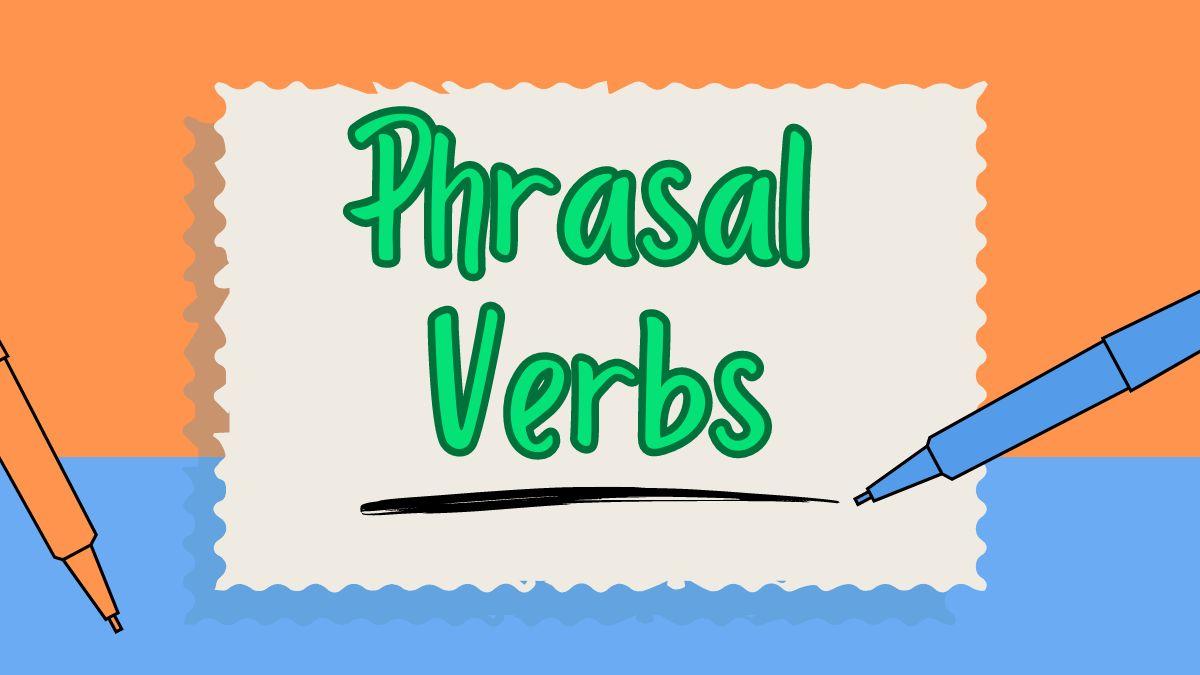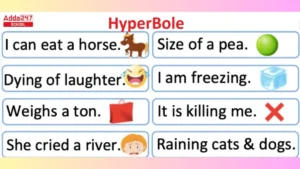Table of Contents
You must have certainly heard about phrases in English language but have you heard about Phrasal Verbs? Phrasal verbs are one of the most important verbs and are quite commonly used, which even you mush have used without knowledge. Because these verbs are rarely discussed with other verbs, it creates problem for students in the exam. To help students learn about the Phrasal verb, we are providing them with the complete information regarding Phrasal Verb.
Phrasal Verbs
Phrasal verbs are combinations of two or more words that create a unique verb with a distinct meaning different from the individual words. For instance, the word “carry on” signifies to continue, which is distinct from the individual meanings of “carry” and “on”
Phrasal verb, commonly used in spoken English, can be confusing due to their non-obvious definitions and the large number of them. Actually, a lot of root verbs are used in various phrasal verbs with different meanings, leading to potential confusion. These verbs are among the most challenging concepts in learning English, especially for people who speak English as a second or third language.
What are Phrasal Verbs?
Phrasal verbs are created by putting together a verb with an adverb or a preposition. At times, it is a blend of the all three parts of speech components: verb, adverb, and preposition. While each of these parts of speech serves a distinct purpose, they collectively function as the verb when combined. These verbs are also able to function as a phrase, which is why they are referred to as phrasal verbs.
These verbs typically have meanings that are different from the words they are made of, therefore consider them to be distinct words on their own. These verbs can also take different verb forms in a sentence.
Phrasal Verbs Definition
The definition of the phrasal verbs as per the English language dictionaries is given below.
According to the Merriam-Webster Dictionary, a phrasal verb is defined as “a phrase (such as take off or look down on) that combines a verb with a preposition or adverb or both, and that functions as a verb whose meaning is different from the combined meanings of the individual words.”
The Cambridge Dictionary defines a phrasal verb as “a phrase that consists of a verb with a preposition or adverb or both, the meaning of which is different from the meaning of its separate parts.”
The Oxford Learner’s Dictionary defines a phrasal verb as “a verb combined with an adverb or a preposition, or sometimes both, to give a new meaning, for example, ‘go in for’, ‘win over’ and ‘see to’.”
Phrasal Verbs Examples
Let us understand the Phrasal verbs in more detail by checking some of its examples.
The phrasal verb get alone means to acquire, and the preposition over typically denotes being at a higher level or moving beyond something. But when combined, the phrasal verb get over takes on a different meaning of recovering from or conquering something, distinct from the individual meanings of get and over.
Another example: I came across your email when I was clearing my inbox, In this sentence came across is the phrasal verb which means “to find something by chance”, while the individual meaning of came and across is different.
Some more examples of phrasal verb of English Grammar is listed below.
- come up
- dive in
- dress up
- take off
- fall apart
- get down
- go on
- hand down
- turn down
- throw away
Phrasal Verbs Types
Phrasal verbs can be categorized into either four main types or two main categories depending on their behavior in sentences. These types are given below:
- Separable Phrasal Verbs
- Inseparable Phrasal Verbs
- Transitive Phrasal Verbs
- Intransitive Phrasal Verbs
Let us know about these verb types one by one.
Separable Phrasal Verbs
Phrasal verbs that are separable are characterized by having the object placed between the verb and the particle are known as separable phrasal verb. There is a specific word order that needs to be considered when dividing the phrasal verb.
Check the examples below:
- Ram is the one who is taking care of the applications for gold loan. Can you please hand it over to him?
- I am not the kind of person who holds all of this against you.
Inseparable Phrasal Verbs
Phrasal verbs that are inseparable cannot be split up and must always be used as a unit. It is the opposite of the separable phrasal verb. The examples of the inseparable phrasal verb is given below.
- Karan was asked to check out of the hotel before 9 p.m. on Tuesday.
- You will have to account for all the losses that have been incurred.
Transitive Phrasal Verbs
Similar to regular transitive verbs, a transitive phrasal verb can be recognized by its requirement for an object.
Examples:
- Can you fill in the required details so that we can move forward with the screening process.
- It was not possible for Veena to do away with all of it as they brought back so many memories of the past.
Intransitive Phrasal Verbs
Intransitive phrasal verbs act in the same way as intransitive verbs. They don’t need an object in order to finish the sentence they’re in or to understand the context.
Examples,
- It has been years since we met, we should definitely catch up.
- My car broke down all of a sudden while driving through the that section.
Phrasal Verbs List
Candidates can check the most commonly used phrasal verbs list in the following table. The table also tells about their meaning and how to use them in a sentence.
| Phrasal Verb | Meaning of the Verb | Examples |
| abide by | To respect or obey a decision, a law or a rule | If you want to keep your job here, you must abide by our rules. |
| account for | To explain, give a reason | I hope you can account for the time you were out! |
| add up | To make sense, seem reasonable | The facts in the case just don’t add up. |
| advise against | To recommend not doing something | I advise against walking alone in this neighborhood. |
| back away | To move backwards, in fear or dislike | When he saw the bear, he backed away in fright. |
| back down | To withdraw, concede defeat | Local authorities backed down on their threats to build on that part of the beach. |
| back up |
|
|
| blow up |
|
|
| break away | To separate from a crowd | One of the wolves broke away from his pack. |
| break down |
|
|
| break up | To come to an end (marriage, relationship) | She broke up with Daniel after dating him for five years. |
| bring up | To raise (a child) | Sara is bringing up her children by herself. |
| burn out |
|
|
| work out |
|
|
| wipe off | To clean (board, table). | I’ll wash up if you wipe off the table. |
| Related Articles | |
| Verb Forms | Transitive and Intransitive Verbs |
| Modal Verbs | Auxiliary Verbs |



 Hyperbole- Explanation, Definition, Exam...
Hyperbole- Explanation, Definition, Exam...
 500+ Antonyms Words List for Kids, Downl...
500+ Antonyms Words List for Kids, Downl...
 Vocabulary Words with Meaning and Senten...
Vocabulary Words with Meaning and Senten...










